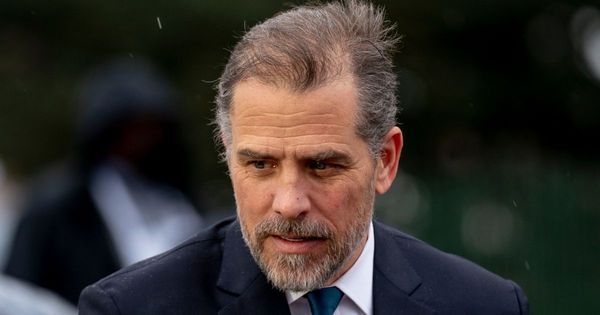Trump Increasingly Seen as De Facto President Amid Biden's Declining Visibility
The current U.S. political landscape appears to shift focus from President Joe Biden to President-elect Donald Trump, who is increasingly perceived as the influencing figure in major national decisions.
Despite Biden still holding the presidential office, discussions and media coverage suggest that a greater political influence is now wielded by Trump, as Hotair.com reports.
Across the political spectrum, consensus suggests that President Joe Biden is experiencing a significant decline in political relevance.
This perception emerges amid recent congressional actions in which Biden's influence was notably absent, particularly concerning issues such as the continuing resolution to fund the government and the debt ceiling debate.
Media narratives have notably shifted, focusing on Trump's direct involvement in high-stake negotiations. Meanwhile, efforts by Democrats to negotiate splits between Trump and influential figures like Elon Musk have further sidelined Biden, adding to the narrative of his diminished role.
Internationally, the situation mirrors domestic perceptions, with world leaders interacting with Trump as though he remains in a presidential role. This international treatment starkly contrasts with Biden's less assertive presence on the global stage.
Media and Public Perception Shifts from Biden to Trump
Commentary within the media has evolved to critically assess its previous portrayal of Biden's presidency.
Reports from major outlets now suggest that his administration was more bureaucratically driven than previously portrayed, with Biden less involved in key decisions.
"Both The New York Times and The Wall Street Journal have provided deep insights into Biden's passive role, with reporters openly admitting previous missteps in covering his administration,” noted one commentator.
As the narrative of Biden's presidency being overshadowed continues, there's rising speculation about the economic challenges ahead.
Observers suggest that these challenges could well be left for Trump to navigate, further providing him a platform to reshape public perceptions against Biden.
Speculation on Economic and Political Outcomes
With the economy's uncertain path, there's a prevalent belief that Trump will adeptly manage the unfolding situations, positioning himself to both assign blame and claim successes.
"Trump has a unique ability to control the narrative, so I expect that he will manage the task of shoving the blame onto Biden and taking credit for anything good that happens," stated a political analyst.
This sentiment is echoed by others in the political sphere, who view Trump's strategic prowess as likely to dominate upcoming political and economic discussions, overshadowing Biden's past and present contributions.
Focusing on domestic issues, Vice President Kamala Harris has also faced similar scrutiny and criticism, not only from opposing parties but within the Democratic Party's ranks, suggesting a broader issue of visibility and influence within the current administration.
Internal Challenges Within the Democratic Party
The discourse surrounding Harris parallels that of Biden, with internal party critics pointing to inefficiencies and a lack of leadership visibility.
This has compounded the administration's challenges in asserting its authority and mandate amidst ongoing political turbulence.
Within this context, the dialogue about the current U.S. presidency and its future trajectory continues to evolve, with significant implications for both domestic policies and international relations.
As observers look ahead, the interplay between perceived leadership, media representation, and public expectation continues to shape the political landscape, heralding a period of intense scrutiny and potential realignment in U.S. politics.





